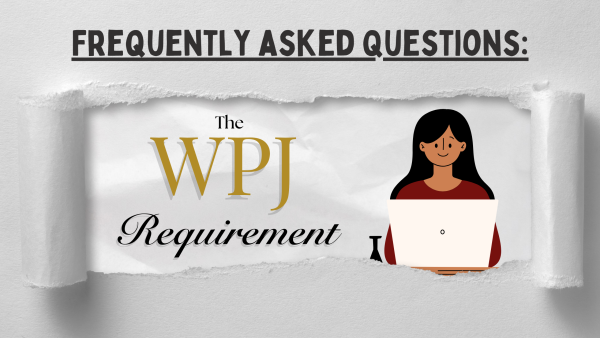Studies show hangovers potentially more dangerous than inebriation
October 6, 2006
(MANHATTAN, Kan.) – According to research in the Annals of Internal Medicine, those experiencing hangovers can be a threat to themselves and others even after their blood alcohol levels have returned to normal.
Because of the reduced cognitive abilities that accompany a hangover, routine activities can be seriously affected. The research suggests that hangovers can potentially be more dangerous than actual inebriation.
In the quest for hangover prevention, Nutrimark, LLC, recently has uncovered its Hangover Prevention Formula. According to the HPF Web site, www.hangoverprevention.com, HPF is a natural dietary supplement that provides protection from the “morning after” symptoms experienced after prolonged or excessive alcohol consumption.
Gerald Stefanko, chief executive officer of Nutrimark, said taking one dose of the formula two hours before drinking will continue curing the drinker’s hangovers for the next three days. The recommended HPF dose is one pill for alcohol consumers weighing less than 130 pounds and two pills for those weighing more than 130 pounds.
HPF contains a patented, all-natural extract, Tex-OC, derived from the fruit of the Prickly Pear Cactus. This extract accelerates the body’s natural response to physical stressors like alcohol. Along with Tex-OC, HPF contains supplementary B vitamins, which prevent alcohol’s depletion of vitamins necessary for proper nerve and muscle and cardiovascular functions.
Along with nutritional benefits, Stefanko said numerous clinical tests, including a double-blind, randomized study among 62 graduate medical students at Tulane University, have proved the extract’s ability to protect the human body against various types of hangover symptoms.
“We are different than anything out there today. All other products released on the market are just that: remedies,” Stefanko said. “Our product, Hangover Prevention Formula, is the only clinically proven hangover remedy. After 10 years of research, this is what we have come up with.”
Bill Arck, director of Alcohol and Other Drug Education Service with University Counseling Services, said he had not heard of HPF. However, he is skeptical of the new formula.
“Let’s just say I’m not going to invest my retirement funds into this company,” Arck said.
In his years working at AODES, Arck said he has seen at least one new hangover-cure formula every six months, but he has yet to be impressed by any of them. Arck also said research has shown the best method to cure hangovers is one that’s much cheaper than buying pills or formulas.
“There is too much good research that proves the best way to prevent hangovers is simply time,” Arck said. “If you drink too quickly or drink heavily for a long period of time without allowing your body the appropriate amount of time for the alcohol to work through your system, you’ll get a hangover — period. It doesn’t matter what kind of hangover-prevention supplements you use.”
Arck said that in order to prevent hangovers, the appropriate amount of time for alcohol to fully work through your body’s system is one hour per alcoholic beverage. Arck noted that one alcoholic beverage is a 12-ounce beer, a 5-ounce glass of wine, or one shot of hard liquor. Arck also stated that drinking 8 oz. of water for every alcoholic beverage also contributes to your body’s recovery.
Along with Arck, Barbara Pearson, a licensed psychologist with the campus counseling services, expressed her skepticism.
“I feel that the placebo effect sometimes plays a role when people feel that these hangover cures work,” said Pearson.
The placebo effect is the phenomenon that a person’s symptoms can be alleviated by an otherwise ineffective treatment, since the individual expects or believes that the treatment will work, Pearson said.
“Take for example if I were to be exercising with a personal trainer,” explained Pearson. “I might have been doing the same workout before on my own. But since I’m working out with a personal trainer, I would feel like I was now getting a better workout.”
Pearson then discussed how she would test HPF.
“If I were to test the this formula on 50 people, I would give 25 of them the actual formula, and the other 25 people a sugar pill, telling them that it was the HPF formula. I can almost promise you that some of those 25 people who took the sugar pill would say that they felt better because of this placebo effect, or because they wanted to feel better.”
“The mind-body connection is very strong,” Pearson said. “If we think positive, or feel better mentally, our bodies will then feel better.”
David Dick, junior in agriculture economics, said he is skeptical of HPF. He said he has never experienced with hangover cures, but he might give the formula a try.
“If it’s really proven to work for three days, I would really be interested in trying it,” said Dick.
“However, it would definitely depend on how much it costs, and I would also be concerned about the health issues. I think I would need to know more about the formula, especially if it’s going to be in my body for supposedly three days.”
Amanda Stanford, a junior in psychology, said the formula sounds great but has heard from others that hangover preventers or cures never work.
“I guess what makes me interested in HPF is what makes this hangover cure so much better than the others that don’t work,” Stanford said.


































































































































